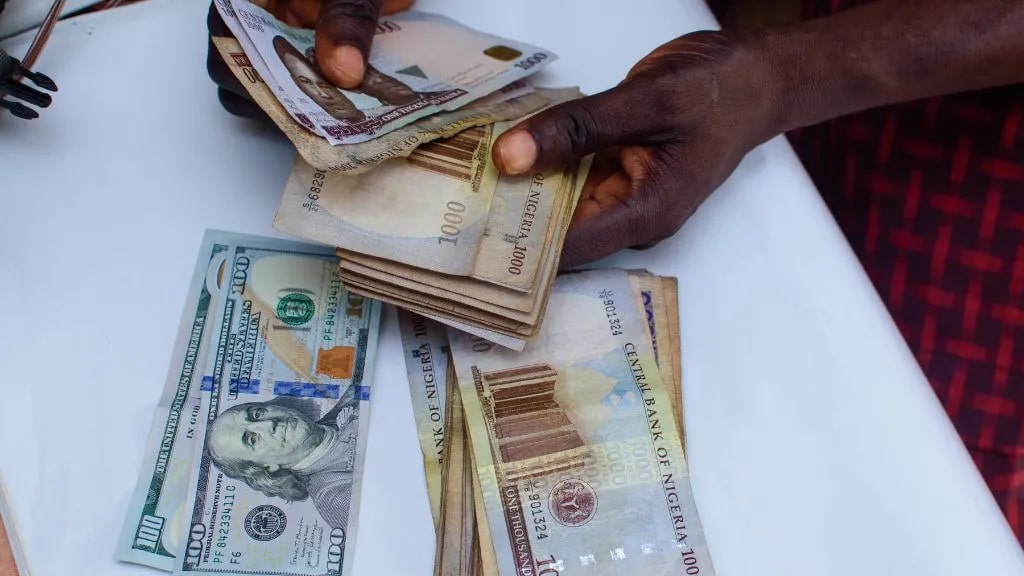LAGOS, Nigeria — May 12, 2025 — The naira depreciated slightly against the world’s major currencies (U.S. dollar, British pound, euro, and Chinese yuan) on Sunday. Although the movements were marginal, they have drawn considerable attention from economic analysts, traders, and international observers, reflecting the continued volatility of Nigeria’s foreign exchange regime.
Data from Google Finance indicates that the naira declined by 0.21% against the U.S. dollar and 0.16% against the British pound sterling. Analysts attribute this depreciation to short-term shifts in foreign currency demand, improved liquidity conditions, and recent interventions by the Central Bank of Nigeria (CBN).
As of May 12, 2025, the U.S. dollar was trading at ₦1,610.49, compared to ₦1,607.11 on May 11—a modest yet noticeable weakening of the local currency. Similarly, the British pound rose from ₦2,137.22 to ₦2,140.71, reflecting a minor loss for the naira. While these changes may appear insignificant, they underscore ongoing pressures within Nigeria’s foreign exchange system.
Nigeria’s foreign exchange market has endured turbulent conditions over the past year, fueled by macroeconomic imbalances, inconsistent policy communication, and persistent external challenges. The naira continues to struggle to maintain parity with major currencies, largely due to declining oil revenues, shrinking foreign reserves, and tepid investor inflows.
“This is not a sign of long-term weakness alone,” said a senior economist at a Lagos-based investment firm. “It reflects temporary realignments in a system grappling with structural deficiencies, including low foreign direct investment, heavy import dependency, and a widening fiscal deficit.”
A persistent challenge remains the significant disparity between the official and parallel market exchange rates. With ongoing dollar shortages in the formal banking system, many individuals and businesses have turned to Bureau de Change (BDC) operators for access to foreign currency. As of May 12, the euro was trading at ₦1,810.90 per €1, while the Chinese yuan held steady at ₦222.33 per ¥1.
Read more:
Naira holds steady against dollar, gains slightly against pound
Naira gains 0.23% against dollar as forex market adjusts
Market watch: Naira struggles at ₦1,607.66 per dollar on May 2, 2025
The CBN has vowed to implement a range of policy tools to stabilize the naira. These include enhancing transparency in forex transactions, attracting diaspora remittances through incentive schemes, and boosting foreign reserves. However, critics argue that these initiatives will remain insufficient without broader structural reforms.
“The CBN is operating within a limited policy window,” said a London-based currency strategist. “But unless Nigeria embraces comprehensive fiscal reforms and diversifies its exports beyond oil, the naira will remain exposed to economic shocks.”
Nigeria’s import-dependent economy further complicates currency stability. Critical imports such as machinery, pharmaceuticals, and food rely on stable access to foreign exchange. When supply becomes constrained, inflation spikes, business activities falter, and economic inequality deepens.



